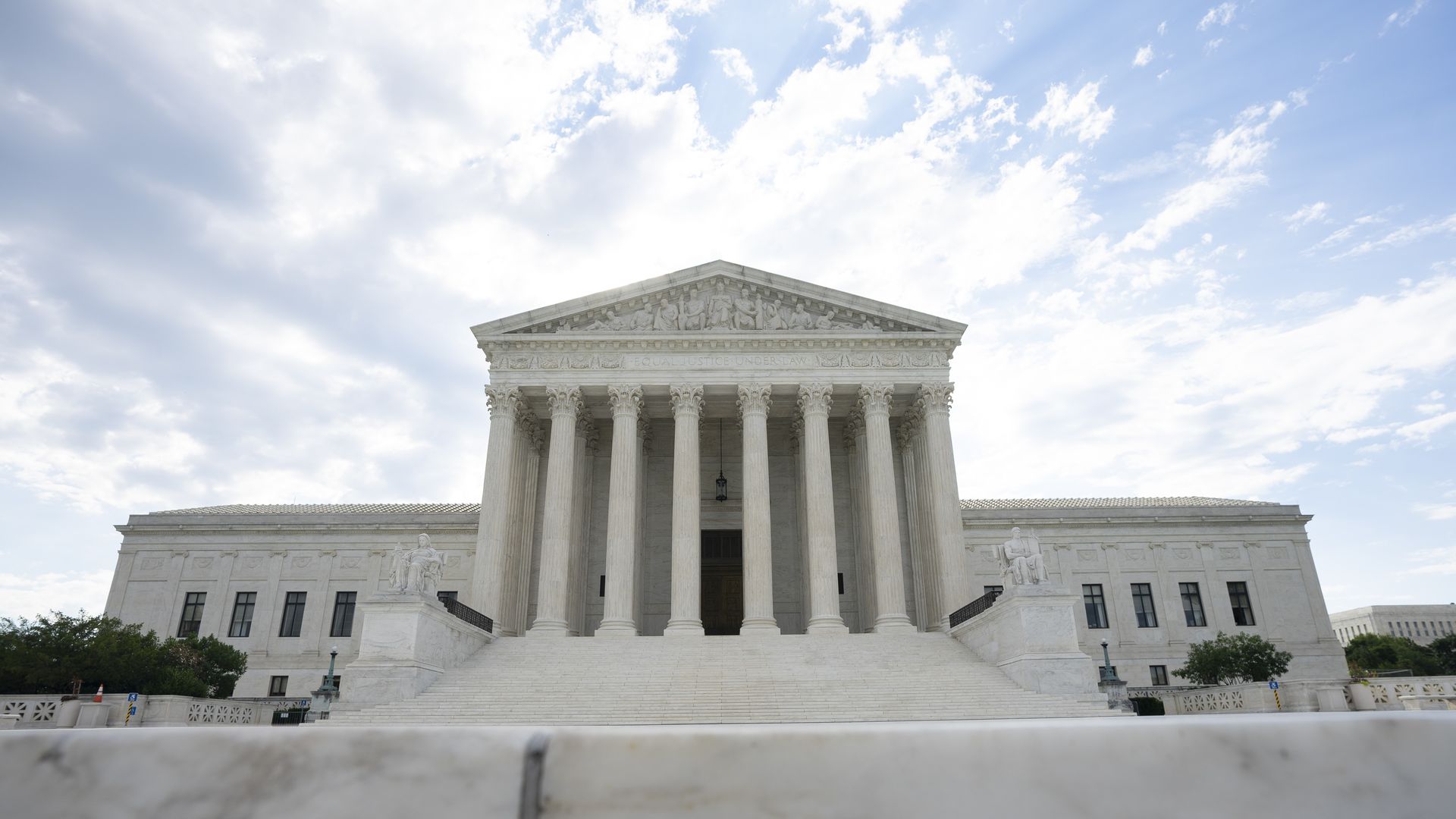Supreme Court upholds anti-robocall law
Add Axios as your preferred source to
see more of our stories on Google.

Photo: Stefani Reynolds/Getty Images
The Supreme Court on Monday ruled that it's unconstitutional for the government to permit certain robocalls but ban others based on who's doing the calling and for what purpose.
Why it matters: The ruling leaves existing restrictions on robocalls in place and ends a recent exemption from them, rather than opening the floodgates to more.
Details: The court said Congress violated the Constitution in passing a 2015 amendment to the 1991 Telephone Consumer Protection Act (TCPA), the law that places limits on the use of robocalls. That 2015 change exempted callers that are collecting debts owed to the U.S. government, such as federal student and housing loans.
- That was tantamount to a speech test, favoring "debt-collection speech over plaintiffs’ political speech," said Justice Brett Kavanaugh, writing for the court.
- The plaintiffs were representing political consultants who wanted the justices to make broader exceptions to TCPA's ban on robocalls so that political campaigns, pollsters and the like could more easily make such calls to Americans, including on their mobile phones.
- But the court didn't do that — instead, it left TCPA intact, aside from striking down the 2015 exemption.
The bottom line: With the highest court establishing an all-or-nothing precedent in its treatment of robocalls as speech, lawmakers looking to make TCPA's robocall rules more effective will likely have to think bigger than placing narrow, content-based restrictions or exemptions.
Go deeper: Robocallers make First Amendment case at the Supreme Court
